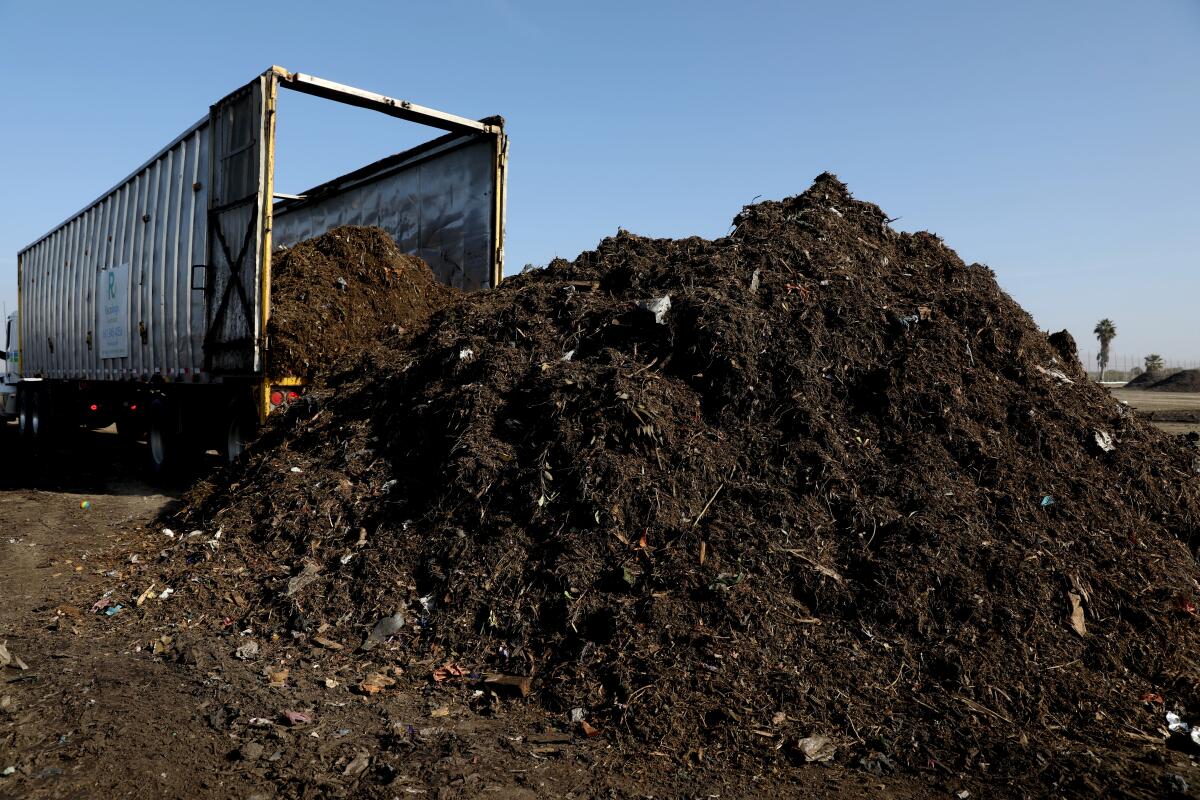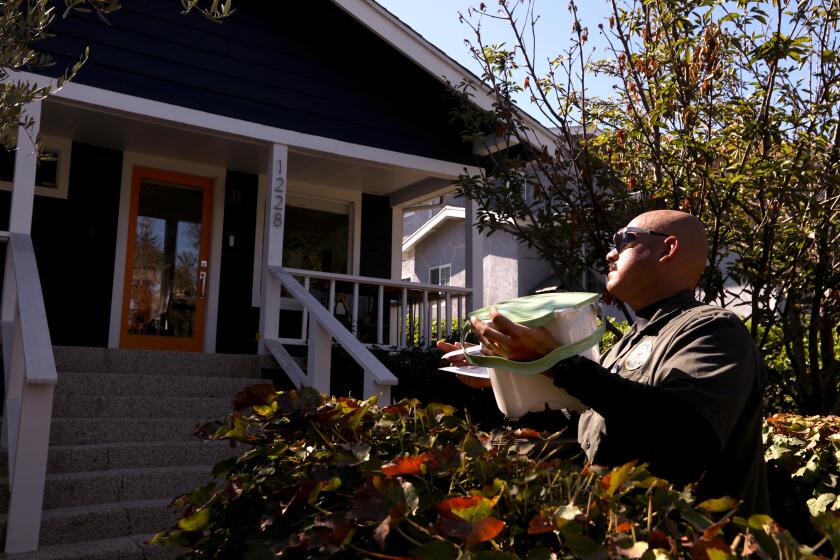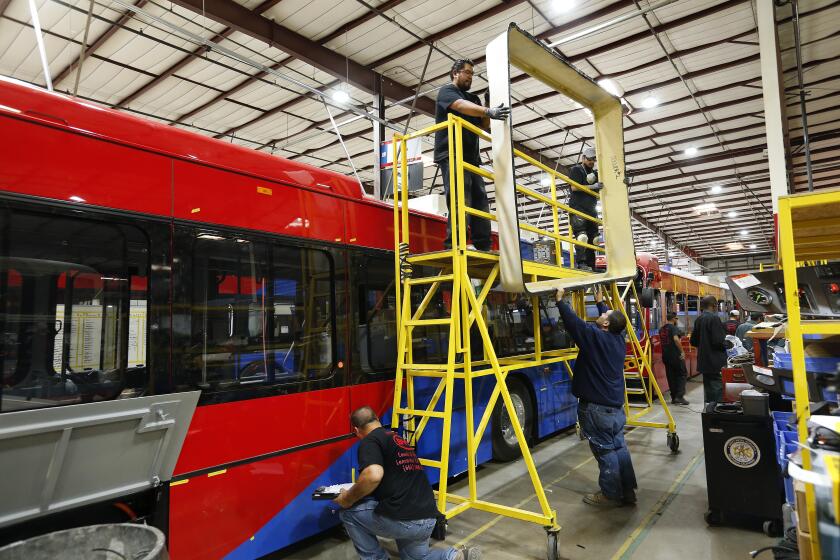Editorial: Don’t stop composting. California can’t afford to abandon its methane-busting law now

- Share via
This year, Angelenos were invited to start discarding potato peels, chicken bones and other food scraps in the green yard waste curbside bin rather than the trash can.
But it’s not exactly optional. A state law passed in 2016 requires every city and community in California to divert 75% of organic waste from landfills and to recover and redistribute 20% of edible food before it can be thrown away by 2025. Those that don’t comply can be fined up to $10,000 starting next year. Even individual households and businesses can be fined for noncompliance.
It’s a heavy lift, so to speak. Food scraps, food-soiled paper products, lawn clippings, tree trimmings and other organics typically make up about half of the 41 million tons of waste California sends to the dump each year. Or at least they did before the law went into full effect this year, though it’s not clear how much is being diverted quite yet. When organic waste rots it produces methane, a particularly potent greenhouse gas that traps about 80 times as much heat as carbon dioxide. Composting is an important tool to fight global warming.
On Monday, a city holiday, Los Angeles announced that the long-awaited curbside composting program was available citywide. Did anyone notice?
California has already missed the law’s first deadline to divert 50% by 2020. Worse, the amount of organic material going to the landfill increased between 2014, which is the starting point to calculate reductions, and 2020. Now it is looking like the state will blow the 2025 deadline as well.
That is at least part of the reason the bipartisan Little Hoover Commission has called for the 2016 law, Senate Bill 1383, to be temporarily paused. In a report released earlier this month, the commission, which is composed of members of the public and legislators, wrote that “significant changes are needed if the state is to meet its target of reducing the amount of organic material going into landfills. We believe the state should reaffirm its goal, while reconsidering its method.”
There’s nothing wrong with reaffirming the state’s organic recycling goal. And if the method of implementation can be improved upon, we’re all for it. But stopping the organics recycling law now after cities and private industry have invested so much time and money into compliance would be a huge mistake. If California is lagging in carrying out this crucial climate change policy, the response should be to try harder, not to give up.
Metro announced the 2030 climate goal with much fanfare but now wants to quietly push back plans by five years. The board should intervene.
Happily, that’s the position of CalRecycle, the state agency overseeing and guiding local governments’ compliance with the law. CalRecycle Director Rachel Machi Wagoner said pausing the law would send a terrible message to the waste industry that has been investing in building new facilities, such as those to do large-scale organic composting, and to local governments that have been setting up recycling and food recovery programs to meet the 2025 deadline.
Besides, she says it is too soon to say whether the 2025 deadline will be met. Cities and communities have made significant improvements this year to catch up after being stalled by the pandemic. “We have made so much progress in the last 18 months, and that is not reflected in their review,” Wagoner said of the commission report. For example San Diego, the state’s second-largest city, was behind in implementation but now expects to roll out curbside organics collection to all residents by August, she said.
The report makes clear that the commission’s intention is to help the state reach its organics recycling goal, and many of its recommendations to improve compliance — such as increasing public education and providing extra consideration for rural counties — are welcome. The suggestion that California become a model of waste management that other countries can follow is certainly right on.
State regulators should embrace the commission’s ideas for improvement — and forge full speed ahead to reach the 2025 goal.
More to Read
A cure for the common opinion
Get thought-provoking perspectives with our weekly newsletter.
You may occasionally receive promotional content from the Los Angeles Times.












